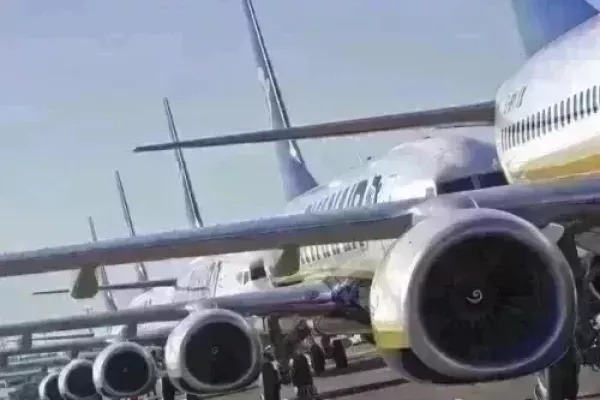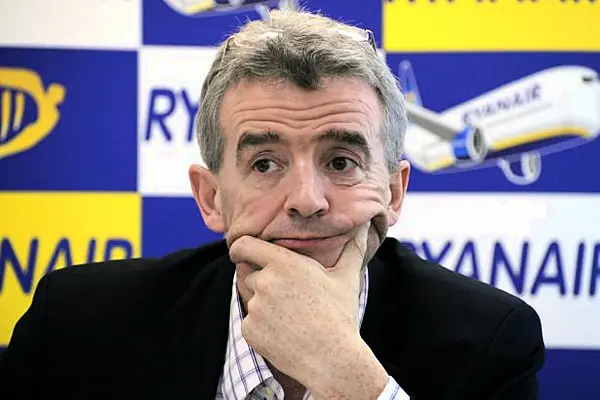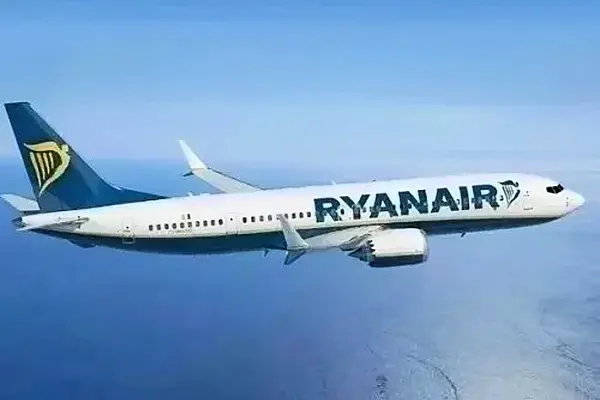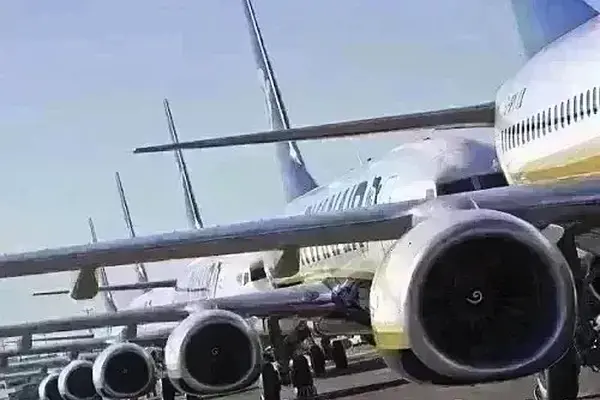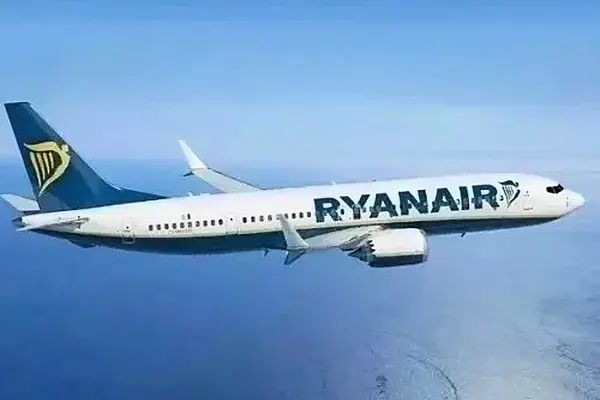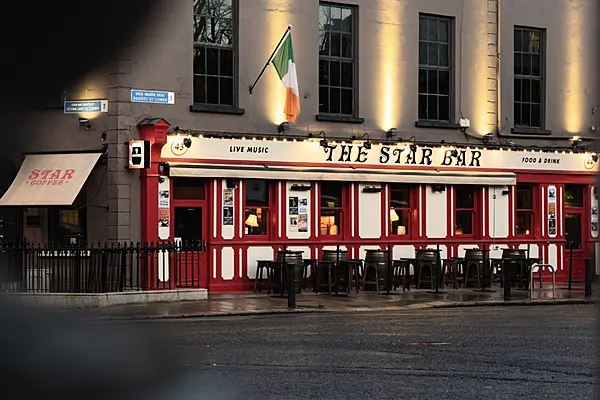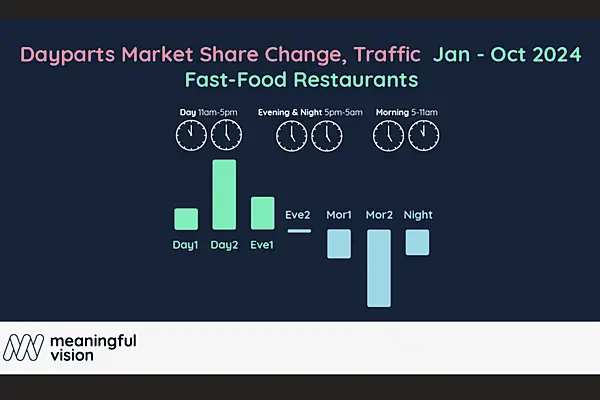European flights faced widespread disruption on Friday 16 September as a French air traffic controllers' strike forced airlines to cancel half of those scheduled to arrive or depart Paris airports and others due to have flown over France.
Strikes and staff shortages in the past few months have forced airlines to cancel thousands of flights, dashing their hopes of a summer rebound after widespread COVID-19 lockdowns, with disruption continuing into the autumn.
"It's a little stressful, we'll have to find a solution quite quickly because we're expected at another hotel at another place," Canadian traveller Cedric Jutra told Reuters.
French air traffic control union SNCTA said in a statement that the walkout by its members was over the effects of inflation and its demand for more staff members.
"It is inexplicable that thousands of European citizens/visitors will have their travel plans unfairly disrupted by yet another French ATC (air traffic control) strike," Ryanair said.
The Irish airline said the travel plans of 80,000 passengers had been affected when it had cancelled 420 flights, mainly intended to fly over France.
Air France had said on Wednesday 14 September that it would operate only 45% of its short and medium-range flights and 90% of its long-haul flights.
'QUITE DIFFICULT'
"I realised this morning when I woke up that the flight had been cancelled ... I managed to rebook but this is not good, as it's the start of the day and it's quite difficult," said Javier Vianuevua, a Spanish passenger on a Barcelona-bound flight.
Aviation authority DGAC, which had asked airlines to halve their flight schedules, said some local airports were temporarily closed, including Montpellier and Rennes, adding there were "significant delays" across the country's airports.
"Everything is very quiet, as the passengers had been warned in advance and did not go to the airports," a spokesperson for Paris airports operator Groupe ADP ADP.PA told Reuters, adding that airlines had tended to cut short and medium services.
Low cost carrier easyJet said it had cancelled 76 flights due to the strike.
British Airways said it had made a small number of changes to its short-haul schedule and is offering rebooking and refund options to customers whose flights have been cancelled.
Major airports in neighbouring countries also felt the impact, with Spanish airport operator AENA saying it had been forced to cancel 65 flights.
Ryanair Cancels 420 Flights Due To French Air Traffic Control Strike
The above news followed news that Ryanair said it will cancel 420 Friday 15 September flights, impacting 80,000 passengers, due to an air traffic control strike in France that will limit overflights and more than halve Air France's scheduled short and medium-haul services.
France's DGAC aviation authority earlier this week asked airlines to halve their flight schedules on Friday 16 September due to the planned strike.
Ryanair, Europe's largest airline by passengers carried, said it will mainly be impacted by the limitation on overflying France. It flies up to 3,000 flights a day across Europe during its peak season.
"It is time that the EU step in and protect overflights so that European passengers are not repeatedly held to ransom by a tiny French ATC union," Ryanair operations director Neal McMahon said in a statement.
Other air traffic control centres should be allowed manage overflights of France during strikes, the statement said.
Air France has said it will operate only 45% of its short and medium-haul flights on Friday 16 September.
France's SNCTA air control union has cited inflation and its demand to hire more people as the reasons for the walkout.
Ryanair Apologises For Blocking Media From Attending AGM
All of the above news followed news that Ryanair apologised on Thursday 15 September for blocking media access to its annual general meeting, saying it happened by mistake, but said it would continue to prevent access to one journalist from an Irish newspaper.
Reporters who understood they were being brought to the annual general meeting room, which is normally open to the press, were told they were being brought to a media room instead for a post-AGM briefing by chief executive Michael O'Leary.
After the conclusion of the meeting, O'Leary apologised to journalists saying his team had "mishandled" the situation and promised a more detailed explanation later.
All resolutions at the meeting were approved, Ryanair said, with 96% backing the remuneration policy and 100% backing the company's annual accounts, the airline said.
Most of the board was re-elected by at least 85% of shareholders, though two former senior Ryanair executives, Howard Millar and Michael Cawley were backed by 72% each.
Proxy advisory firm PIRC has questioned whether former executives can provide independent oversight. O'Leary said he did not agree and said the two gave management "the most grief" of any board members. He said he had no plans to replace either.
O'Leary defended a decision to bar John Mulligan, a journalist for the Irish Independent, who he said had "misreported" on the company in the past, a charge Mulligan has repeatedly rejected as baseless.
The Irish Independent quoted the National Union of Journalists as saying that any attempt to dictate who covers a story would be unacceptable and pointed out that a complaint by Ryanair against the newspaper in 2019 had been rejected by Ireland's Press Ombudsman.
News by Reuters, edited by Hospitality Ireland. Click subscribe to sign up for the Hospitality Ireland print edition.
